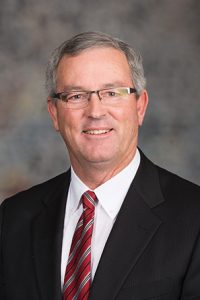Tax incentives for carbon capture and storage proposed
Companies that capture, transport or store carbon dioxide from anthropogenic sources would qualify for certain tax incentives under a bill heard Feb. 2 by the Revenue Committee.
Venango Sen. Dan Hughes, sponsor of LB801, said the bill would clarify whether such activities, which are regulated under last year’s LB650, qualify for incentives under the ImagiNE Nebraska Act.
Tony Goins, director of the state Department for Economic Development, testified in support of the bill. Under current law, he said, Nebraska businesses that pressurize and transport carbon dioxide via pipeline for sequestration outside the state may qualify, but businesses that sequester their carbon dioxide emissions onsite do not.
The change would ensure that the ImagiNE Nebraska Act does not favor one technology over the other, Goins said.
Mick Mines testified in support of LB801 on behalf of the Nebraska Corn Growers Association, Nebraska Farm Bureau and Nebraska Soybean Association. Since the passage of LB650, he said, several Nebraska ethanol plants and private companies have announced pipeline projects intended to reduce the industry’s carbon dioxide emissions.
Testifying in support of the bill on behalf of the Nebraska Ethanol Board, Reid Wagner said incentivizing those projects would benefit the state’s economy by making Nebraska ethanol more valuable in states such as California and Oregon that have adopted low-carbon fuel standards.
Kenneth Winston testified in opposition to LB801 on behalf of Bold Alliance. He questioned whether tax incentives are needed to encourage business activity that already is taking place. Additionally, he said, carbon dioxide pipelines are a relatively new technology and present the risk of leaks.
The state Department of Revenue, in its fiscal note for LB801, assumes that one project would qualify for incentives in 2025 and another in 2027. It estimates that the bill would reduce state general fund revenue by approximately $3.1 million in fiscal year 2025-26 and $3.7 million in FY2028-29.
The committee took no immediate action on the bill.

